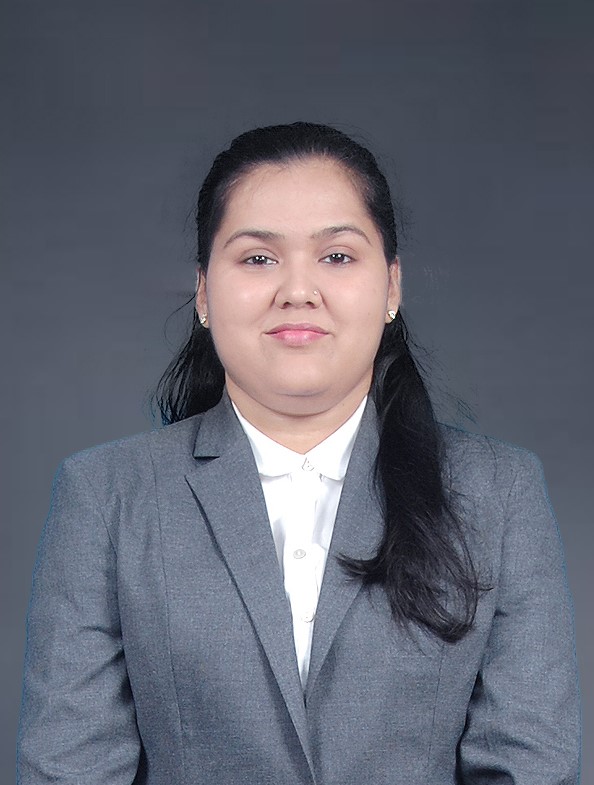ISMA Conference
IFPUG ISMA Conferences
The purpose of the ISMA (International Software Metrics & Analysis) Conference is to provide educational and networking opportunities to IFPUG members and software measurement professionals in general, by learning and sharing knowledge in the world of software measurement. Along with IFPUG publications and products, the goal of the ISMA conferences is to increase the global reach of Function Points Analysis and SNAP with strategically chosen themes by taking industrial and academic interest into consideration.
Background
IFPUG was formally established in 1986 in Westerville, Ohio, USA, and the first conference was held that same year in Toronto, Canada. For the first several years, IFPUG held bi-annual, in-person multi-day conferences, along with workshops, committee meetings. First ISMA conference (ISMA1) took place in the month of September 2006 and was held in San Diego, CA.
Due to the COVID-19 pandemic, the ISMA conferences have changed in format, from a traditional face-to-face event to a virtual one-day annual conference, with the most recent having been ISMA19 held in June 2022.
Benefits
For beginners, the conference program often combines regular presentations with educational workshops, during face-to-face events. For experts, it is a platform to share ideas with the measurement community and to learn from other experts. Networking opportunities offered by ISMA are highly valued in the industry.
Upcoming ISMA Conference
Coming Soon.

Beyond Limits: Unlocking IT Power with Smart Metrics
Measuring and Leveraging AI for Smarter, Faster, Measurable Results
September 25, 2025 · Seoul, South Korea & Online In partnership with KOSMA
A Landmark Event for Asia
ISMA2025 is not just another conference — it marks the first IFPUG event in Asia in decades, hosted in the vibrant city of Seoul.
This special edition is a historic opportunity for professionals across South Korea, Japan, China, India, Southeast Asia, and beyond to connect, collaborate, and shape the future of IT measurement together.
We extend our special thanks to KOSMA for co-hosting this milestone edition and helping bring the IFPUG global community to Asia for the first time in many years. Their partnership ensures a high-quality, locally connected, and globally relevant experience for every attendee.
Why Attend ISMA2025?
Join the global hub for IT leaders, measurement experts, software architects, and innovators ready to harness smart metrics to push technology beyond its limits.
This year’s mission:
Measure, optimize, and unleash AI’s potential — with accuracy, speed, and measurable business impact.
Unmissable Sessions
Featuring both international thought leaders and local experts:
- Estimating AI Agents Using Function Point Analysis (FPA)
A practical framework for software & AI architects - AI Superpowers to Enrich Software Development
AI-enhanced requirements, estimation AI copilots, AI-generated test cases - Functional Measurement of AI-Powered Chatbots (CFPS CEP-eligible)
- Non-Functional Measurement of AI-Powered Chatbots (CSS CEP-eligible)
Language & Accessibility
- Sessions will be presented in either English or Korean.
- Simultaneous translation will be provided so that all content is available in both languages regardless of the session’s original language.
- Speakers will include renowned international experts and leading voices from the Korean and Asia-Pacific tech community.
Live & On-Demand Access
- All sessions will be streamed live so you can participate in real time from anywhere in the world.
- Full recordings will be available after the event, ensuring you can revisit the content or catch up on anything you missed — no matter your time zone.
Exclusive Benefits
In-person attendees enjoy:
- Full-day access at EL Tower, B1F Gold Hall in Seoul
- Networking lunch & coffee breaks included
- Priority face-to-face networking with global and Asia-Pacific industry leaders
All attendees (on-site & online) receive:
- 25% discount voucher for the CSS Certification Exam
- Access to full event recordings post-conference
Secure Your Spot Today
Seats for in-person attendance are strictly limited — and interest across Asia is high.
Register Now📍 Event Venue
EL Tower, B1F Gold Hall📍 View on Google Maps
The venue is located in the southeastern part of Seoul. It offers convenient transportation options, including a limousine bus service from Incheon International Airport to COEX in Gangnam. There are also a variety of hotels and other accommodations available nearby.
Mark your calendars and stay tuned for more information. We look forward to seeing you in Seoul!
Early Bird Registration |
Pre-Registration |
On-Site Registration |
||||
|---|---|---|---|---|---|---|
| Type | Member | Non Member | Member | Non Member | Member | Non Member |
| General (In-person) | 115 | 145 | 145 | 175 | 175 | 205 |
| Student (In-person) | 55 | 70 | 70 | 105 | 105 | 145 |
| General (Virtual) | 0 | 75 | 0 | 75 | 0 | 75 |
| Student (Virtual) | 0 | 75 | 0 | 75 | 0 | 75 |
Early Bird Registration: now - 9/5
Pre-Registration: 9/6 - 9/19
On-site Registration: 9/20 - 9/25
| Levels of Participation | Pricing | Additional Benefits |
|---|---|---|
| IFPUG Members | FREE | |
| Non-Members | $75 with additional benefits | Access the conference for $75. Becoming a member, you will save what you paid as follows. 10% discount on individual membership fees + 10% discount on certification exams for CFPS and CSS |
All times listed below are in EDT (Time Conversion)
All sessions below are in Korean Standard Time. To know the time in your country for the conference– Please use this link Time Conversion.
ISMA2025 Hybrid Conference Agenda: Thursday, September 25
Yoonseok Lee. KOSMA Director

Roopali Anand Thapar, IFPUG president
This presentation introduces a practical framework for estimating AI agents using Function Point Analysis (FPA). While traditional FPA suits data-driven systems, AI agents require a nuanced approach due to their learning, reasoning, and interaction capabilities. The session explores how to map AI functionalities to FPA components, adjust complexity weights, and incorporate value adjustment factors. It also contrasts the effort involved in building versus embedding AI agents and provides actionable recommendations for accurate, scalable estimation in AI-driven solutions.
Key Topics
- Introduction to Function Point Analysis (FPA)
- Understanding AI Agents in Software Systems
- Adapting FPA for AI Workloads
- Complexity Weighting and Value Adjustment Factors (VAFs)
- Effort Estimation: Building vs. Embedding AI Agents
- Sources of Estimation Data
- Estimation Strategy and Best Practices
- Recommendations and Expert Tips
Benefits for Participants
Participants will gain:
- A clear understanding of how Function Point Analysis can be adapted for AI agent estimation.
- Practical techniques to map AI agent components to FPA elements.
- Insights into effort drivers for building vs. embedding AI agents.
- Strategies to estimate AI workloads using standardized, technology-agnostic methods.
- Expert tips for improving estimation accuracy and traceability in AI projects.
Roopali Anand Thapar
IFPUG president
Roopali Anand Thapar is an Associate Partner at IBM, serving as the Global Leader for PM&T Estimation and Data Governance. With over 21 years of experience in IT consulting, Roopali specializes in Effort estimation, benchmarking and data-driven transformation. She has led the evolution of traditional estimation models—such as Excel-based simulations—into scalable, AI-powered frameworks that support global delivery and managed services within IBM. Roopali is also a recognized thought leader in Function Point Analysis and serves on the Board of Directors for IFPUG as the President. Her work bridges technical rigor with strategic insight, enabling organizations to make smarter, faster decisions.

Julián Gómez. LedaMC & Quanter Chief Digital Officer.
Sponsor presentation
This session is being presented by Julián Gómez on behalf of Andrés Gutiérrez, who was originally scheduled to deliver this talk but was unable to travel. The content and viewpoints expressed are solely those of the speaker and do not imply sponsorship or endorsement by IFPUG.
Unlock AI Superpowers for Software Estimation and Quality. Discover how Generative AI is transforming both software development and estimation processes. In this session, we’ll reveal how Quanter, our cutting-edge vendor management and estimation platform, integrates AI to give you true superpowers:
- Supervision — Automatically review and enhance requirements or user stories for clarity and completeness.
- Supercalculation — Produce Function Point–based estimates (IFPUG, NESMA, SFP, and more) in just seconds.
- Superquality — Generate complete test cases directly from functional requirements text.
You’ll also learn how Quanter’s AI delivers market-based insights to help you evaluate and benchmark your estimates.
Built to scale across an entire organization, Quanter empowers metrics experts and IT leaders to manage all development projects with unprecedented speed and accuracy — backed by what may be the largest database of software project references in the world.
Join us to see these capabilities in action and understand how you can elevate your estimation, quality, and decision-making with AI.
Key Topics
- How Generative AI is revolutionizing software development and estimation.
- AI-powered enhancement of requirements and user stories (Supervision).
- Rapid Function Point–based estimations (IFPUG, NESMA, SFP) in seconds (Supercalculation).
- Automatic generation of complete test cases from functional requirements (Superquality).
- Market benchmarking and analysis of estimation results.
- Scaling estimation and quality processes across the entire organization.
- Leveraging one of the world’s largest databases of software project references.
Benefits for Participants
Participants will gain:
- Gain a clear understanding of how to integrate Generative AI into estimation and quality workflows.
- Learn practical methods to improve requirement definition instantly.
- Discover how to produce accurate Function Point–based estimates in seconds.
- See how to generate comprehensive test cases automatically from requirement text.
- Understand how to benchmark estimates against market data for more competitive decision-making.
- Explore strategies for scaling metrics and estimation processes organization-wide.
- Improve project predictability and stakeholder confidence with data-backed AI insights.
Julián Gómez
Director of Communications, Marketing & Partnerships – IFPUG
Chair, Communications and Marketing Committee – IFPUG
Chief Digital & Artificial Intelligence Officer – LedaMC & Quanter
Julián Gómez is an international leader in software measurement, IT governance, and project management, with over 20 years of experience driving innovation and performance improvement in software development. As Director of Communications, Marketing, and Partnerships at IFPUG and Chair of the Communications and Marketing Committee, he plays a strategic role in expanding IFPUG’s global presence, building partnerships, and promoting the adoption of measurement standards worldwide.
He also serves as Chief Digital & Artificial Intelligence Officer at LedaMC and Quanter, leading initiatives that combine digital transformation, AI, and advanced analytics to enhance software productivity, quality, and value delivery.
Julián holds prestigious professional credentials, being IFPUG Certified as both a Function Point Specialist (CFPS) and a Certified SNAP Specialist (CSS), a COSMIC Software Measurement Expert, and a Project Management Professional (PMP) certified by the Project Management Institute (PMI). He has delivered training and keynote sessions in countries across Europe, Latin America, and Asia, offering a global perspective that resonates with diverse audiences.
He is the author of two influential books: El Juego de Tronos de los Proyectos (The Game of Thrones of Projects), which uses popular culture to explore leadership and project management lessons, and Guía práctica de estimación y medición de proyectos software, a hands-on reference for applying software measurement techniques effectively. He also writes the award-winning blog “El Laboratorio de las TI,” recognized as Best Technology Blog in Seville 2015, dedicated to innovation, software metrics, and IT governance.
Passionate about connecting professionals worldwide, Julián actively encourages knowledge sharing and empowers local communities to embrace best practices in software measurement and leadership. His participation in ISMA25 reflects IFPUG’s commitment to collaborating with the Korean software metrics community and fostering global professional excellence.
Heungshik Kim. KOSMA Vice President

Saurabh Saxena, IFPUG Vice President, and Director of Functional Sizing Standards.
As artificial intelligence becomes increasingly embedded in enterprise applications, the need for structured, objective measurement of software functionality remains critical. This webinar introduces the fundamentals of Function Point Analysis (FPA) and explores its application to AI-driven systems, with a focus on practical counting strategies. Using an AI-based chatbot as a case study, we will walk through the identification and classification of transactional functions and logical files, highlighting key considerations when evaluating machine learning components, natural language interfaces, and dynamic data structures. Attendees will gain actionable insights into how traditional measurement techniques can be adapted to modern intelligent systems—bridging the gap between legacy metrics and emerging technologies.
Key Topics
- How to apply function points to an AI based System.
- Identifying and measuring transactions and their complexity
- Identifying and measuring logical files
Benefits for Participants
- Learn how Function Points can be applied to an AI based system
Saurabh Saxena
Saurabh Saxena is the current Vice-President and Director of IFPUG’s Functional Sizing Committee. He brings 20 years of expertise in software sizing and estimations. He is a Certified Function Point Specialist, Certified SNAP Specialist, and PMI-PMP. Saurabh works with LedaMC as ‘Productivity Service Manager’. He is a consultant, trainer, mentor, and specialises in estimations, productivity, cost and quality analysis.
In his free time, Saurabh enjoys sharing his Project Management and Software Sizing experiences through blogs, articles, and whitepapers.
Bonghyun Jo. KOSMA director

Sushmitha Anantha, IFPUG director of Non-functional Sizing Standards.
You may have heard a popular quote from Peter Drucker, a renowned Austrian-American management consultant and author, “You cannot manage what you cannot measure.”
But:
- Can we systematically measure how a system fulfills non-functional requirements (NFRs)?
- How can we break down a broad requirement like “response time under two seconds in 95% of interactions”?
- How do these measurements evolve in the context of AI—particularly AI-powered chatbots?
In the evolving landscape of intelligent automation, ensuring that chatbot systems meet critical NFRs is essential for delivering reliable, secure, and scalable user experiences. This presentation introduces a structured approach to measuring and validating five key NFRs—response time, security, scalability, accessibility, and auditability—using the IFPUG SNAP method. By quantifying these requirements, teams can define measurable targets that inform capacity planning, risk assessment, and cost estimation. The session will also provide a foundational understanding of the SNAP method to support the practical application of NFR measurement in AI chatbot systems.
Key Topics
- How to apply SNAP points to an AI based System.
- dentifying and measuring non-functional software requirements
Benefits for Participants
- Learn how SNAP Points can be applied to an AI based system
Sushmitha Anantha
Sushmitha is working as a Function Point Expert and Project Lead at Accenture India. She is currently the director of IFPUG NFSSC. She has worked for more than a decade in the fields of function points productivity measurement in different domains, methodologies, and technologies.
Hyunjin Roh. KCA Managing Director
Yong-goo Lee. KOSMA Director
Jongsung Kim. KOSMA Director
CEP Eligibility : Registered participants (IFPUG Members) who can’t attend live due to time zone issues will still be eligible for CEP credits if they view the recordings later.
Register NowConferences from Past
ISMA2025 HYBRID - Seoul
Hybrid Conference – September 25, 2025
Roopali Anand Thapar, IFPUG president This presentation introduces a practical framework for estimating AI agents using Function Point Analysis (FPA). While traditional FPA suits data-driven...
Learn MoreJulián Gómez. LedaMC & Quanter Chief Digital Officer. Sponsor presentation This session is being presented by Julián Gómez on behalf of Andrés Gutiérrez, who was originally...
Learn MoreHeungshik Kim. KOSMA Vice President...
Learn MoreSaurabh Saxena, IFPUG Vice President, and Director of Functional Sizing Standards. As artificial intelligence becomes increasingly embedded in enterprise applications, the need for structured, objective...
Learn MoreBonghyun Jo. KOSMA director...
Learn MoreSushmitha Anantha, IFPUG director of Non-functional Sizing Standards. You may have heard a popular quote from Peter Drucker, a renowned Austrian-American management consultant and author,...
Learn MoreHyunjin Roh. KCA Managing Director...
Learn MoreYong-goo Lee. KOSMA Director...
Learn MoreJongsung Kim. KOSMA Director...
Learn MoreISMA2025
Virtual Conference - April 11, 2025
Presented by Thiago Conceição and Dr Carlos Simões Session Description: One of the main challenges faced by organizations is establishing a consistent and agile workflow...
Learn MorePresented by Daniele Zottarel, Luigi Buglione and Fabrizio Di Cola Session Description: SNAP is the IFPUG methodology that allows the assessment of the non-functional dimension...
Learn MorePresented by Harold van Heeringen Session Description: Effective IT management within development projects is more critical than ever. A common misconception is that agile, DevOps,...
Learn MorePresented by Cleber Ferrareze Session Description: Have you ever had difficulties to measure data function or doubts on how to group related entities into logical...
Learn MoreISMA22
Hybrid Conference - Oct 4, 2024 - Spain (Madrid)
Presented by Christine Green Session Description: Have you noticed something new in the Request for Proposals for Large Scale IT contracts from EU Agencies? Function...
Learn MorePresented by Andrés Darío Gutiérrez Poveda Session Description: LedaMC has established the integration of generative artificial intelligence (AI) into the estimation process of function points,...
Learn MorePresented by Renjith Ramananda Shenoi , Esteban Sanchez Session Description: In Present Scenario of Automotive Systems with high focus on Electronics & Software, Research &...
Learn MorePresented by Roberto Meli Session Description: The presentation will introduce the SFP method in its basic elements. It will highlight the advantages of using the...
Learn MorePresented by Saurabh Saxena and Kiran Yeole Session Description: There are various challenges faced by customers/ vendors related to software sizing and estimations. In this...
Learn MorePresented by Michele Canalini Session Description: This presentation aims to explore accounting reporting methods that incorporate both technical and economic measurements of intangible assets. By...
Learn MorePresented by Sushmitha Anantha and Fabrizio Di Cola Industry technology landscape is ever evolving. Yesterday’s state of the art technologies has become normal today and...
Learn MorePresented by Marcello Sgamma Session Description: System clock and other platform data are commonly used in modern software systems. Examples of platform data include network...
Learn MoreISMA21
Virtual Conference - Dec 1, 2023
Presented by Charley Tichenor Session Description: Functional software describes “what” the software will do. IFPUG interprets these aspects as external inputs, external outputs, external inquiries,...
Learn MorePresented by Manjusha Misra - Recording Coming Soon Session Description: Starting with some scenarios involving application enhancements that do not involve changes to functional requirements,...
Learn MorePresented by Alfonso González Mateo Session Description: There are many, more and more, organizations that are committed to use the size of software to help...
Learn MorePresented by Sushmitha Anantha Session Description: The topic of technical debt is very diverse. This term is used for wide spectrum of problems related to...
Learn MorePresented by Luigi Buglione Session Description: In the IFPUG FPA method an Elementary Process is characterized by three elements: set of DETs, set of FTRs...
Learn MoreISMA20
Virtual Conference - May 4, 2023
Presented by Thomas Cagley Session Description: Explicit transparency is a hallmark of all agile approaches. Measurement is one form of making the impact of development...
Learn MorePresented by Charles Wesolowski Session Description: This presentation demonstrated the capability of automatically counting Function Points from well-formed Software Component Architectures expressed in SysML. Students...
Learn MorePresented by Christine Green Session Description: The consistency of the usage of FPA is extremely important for the benefits of FPA in the business area....
Learn MorePresented by Luigi Buglione Session Description: One of the elements initially present in the FPA (not only in the IFPUG version) is the VAF (Value...
Learn MoreISMA19
Virtual Conference – June 24, 2022
Presented by Daniel French & Carol Dekkers Session Description: Roberto Meli developed a more streamlined function point analysis methodology based on the International Function Point...
Learn MorePresented by Saurabh Saxena Session Description: Software Nonfunctional Assessment Process (SNAP) was developed to size non-functional project requirements which were non-sizable by traditional Function Point...
Learn MorePresented by Charley Tichenor Session Description: During the 1990s and early 2000s, there were questions about the usefulness of function points for the portion of...
Learn MorePresented by Charles Wesolowski Session Description: This session will include the following overview: Model Based System Engineering IFPUG Meta Model Elements and Types Functional Analysis...
Learn MoreISMA18
Virtual Conference – June 24, 2021
Presented by Carlos Eduardo Vazquez Session Description: This presentation addresses the software development economic environment in the last decade and how it has changed the...
Learn MorePresented by Julián Gómez Session Description: Discover the 7 key points of function point methodology. These include product focus, use by the international community, improved...
Learn MorePresented by Fabrizio Di Cola and Domenico Geluardi Session Description: In the current scenario of the IT world, security is one of the preponderant factors...
Learn MoreISMA17
Karnataka, India – March 8, 2019
Michael Milutis Abstract: In this session, Michael Milutis will share what he has learned from having consulted with hundreds of project management and IT...
Learn MoreAbstract: In the era of the internet of things (IoT) the boundaries of hardware/software combinations that were once standalone now have expanded. In your kitchen...
Learn MoreAbstract: The presentation will describe how a team training program can enhance the team’s skills, based on a new, creative set of metrics. In addition...
Learn MoreAbstract: Shu-Ha-Ri is a Japanese martial art concept which describes the progression of learning to mastery. This concept can be applied to various disciplines and...
Learn MoreAbstract: What are Micro-services? : Micro services is a form of service-oriented architecture style wherein applications are built as a collection of different smaller services...
Learn MoreAbstract: CMMI v 2.0 released in April 2018, has allotted a separate process area for estimation which is entirely based on solution-size measurement. In this...
Learn MoreAbstract: The advent of digital has brought about a paradigm shift in developing IT solutions. Today’s customers expect exceptional creativity in solving business problems, requiring...
Learn MoreAbstract: Main Topics: Why Objective Sizing like Functional Sizing is still required for Agile Deliveries How to define Categories of T-shirt sizes to achieve functional...
Learn MoreAbstract: Using Functional Sizing on Agile projects requires integration of delivery process with measurement process. The gaps, if any, can take away the whole purpose...
Learn MoreAbstract: When Agile trends started picking up, we heard enough about ‘Function Points are not suitable for Agile’, ‘Function Points are too heavy for Agile’...
Learn MoreAbstract: Nucleon’s and Function Points, a match made in heaven for C-level visibility of IT. To most C-level management, their company’s IT department is a black...
Learn More

